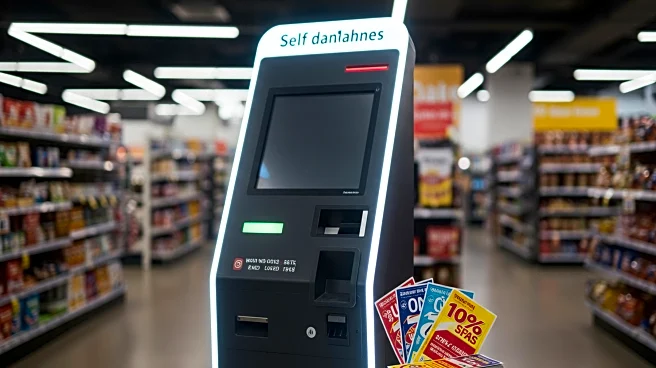What is the story about?
What's Happening?
Self-checkout systems in retail stores are being exploited by shoppers using various coupon tricks that bypass the intended use of these systems. These tricks include scanning paper coupons multiple times, using expired coupons, and entering high-value coupons for cheaper items. The self-checkout machines often fail to detect these discrepancies, allowing shoppers to receive unintended discounts. This exploitation is not only unethical but also poses a risk of store audits or bans for those caught. Retailers are facing challenges as these loopholes lead to financial losses and potential policy violations.
Why It's Important?
The exploitation of self-checkout systems through coupon tricks has significant implications for the retail industry. Retailers may face increased financial losses, which could lead to higher prices for consumers as stores attempt to recoup lost revenue. Additionally, the integrity of self-checkout systems is compromised, potentially leading to stricter policies or reduced convenience for honest shoppers. This situation highlights the need for improved security measures and system updates to prevent such abuses. The broader impact includes potential legal consequences for individuals caught exploiting these systems, as well as a shift in consumer trust and store policies.
What's Next?
Retailers are likely to enhance their self-checkout systems to better detect and prevent coupon fraud. This could involve updating software to recognize duplicate or expired coupons and implementing stricter monitoring of coupon use. Consumers may see changes in self-checkout policies, such as limits on coupon use or increased staff oversight. Retailers might also invest in customer education to promote ethical coupon use. As these systems evolve, the retail industry will need to balance convenience with security to maintain consumer trust and operational efficiency.

















